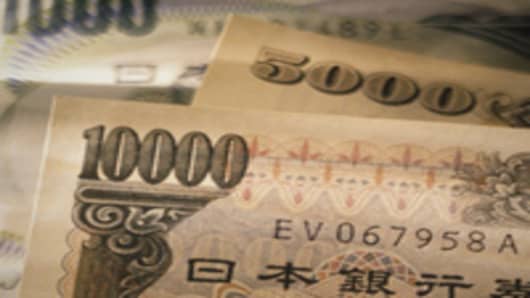But counter to Gartman, ,head of Americas G-10 currency strategy at Bank of America Merrill Lynch Global Research told me:
"I think there is a knee jerk reaction. Investors are looking to sell dollar/yen thinking that repatriation flows and reinsurance inflows could push dollar/yen lower. But I have my doubts on that whether that’s sustainable .If we break 80 on dollar/yen, this thing could run. But I don’t expect the Bank of Japan to take any dramatic measures. And if they do it will be further stimulus for the economy, and that can only be positive for dollar/yen. If anything the interest rate differential works in favor of a weaker yen, not stronger. I have my doubts it can go sustainably lower."
Andrew B. Busch, a contributor to Money In Motionand a global currency and public policy strategist at BMO Capital Markets, told me that investors need to determine their time horizon when considering how to trade the yen today.
“We’re in a little no man’s land right now, trying to figure out what to do,” he told me. “Clearly, Japan is in the middle of a fiscal nightmare, and this is not going to help them. It’s such a mixed reaction. On the one hand, you say you could really be shorting Japan. But on the other hand, the short-term risk-off sentiment will not make it sell off very much.”
Busch said he would still short the yen against the dollar – but he would wait. “You’ll probably get a chance to get into that position below 81.5. I don’t hink the story is over yet.”
Rebecca Patterson, global head of currencies and commodities at JPMorgan’s private bank said:
"The yen impact is not straightforward. However, our sense is that any near-term yen strength that may emerge will be opposed by the Bank of Japan and that our longer-term view for yen weakness remains intact.
Putting it all together, our view is that the yen is a currency we want to sell on rallies. The next key technical support for USD/JPY comes in around 81.42-81.57. Below there, the January low was 80.93-81.10. We would consider looking to buy USD/JPY around that low (81.0), possibly with a stop-loss around 78."
Japanese retail investors are also playing a significant part in propping up the yen, according to Marc Chandler, global head of currency strategy at Brown Brothers Harriman. They are major players in the foreign exchange market – the Bank for International Settlements estimates that they account for about a fourth of the spot trading in FX in Japan – and as Chandler told me, “They have been carrying a very large long dollar position. Supposedly earlier today they were selling the dollars they had previously bought and buying yen. They’re freeing up investments – they don’t know what’s going to happen. They want to keep their money closer to them.”
Other Asian currencieswere also buffeted by the disaster.
Fasten your seatbelts today.
CURRENCY FUTURES
Tune In: Beginning tonight, March 11th, CNBC's "Money in Motion Currency Trading" will air on Fridays at 5:30pm.
"Money in Motion Currency Trading" will repeat on Saturdays at 7pm.



